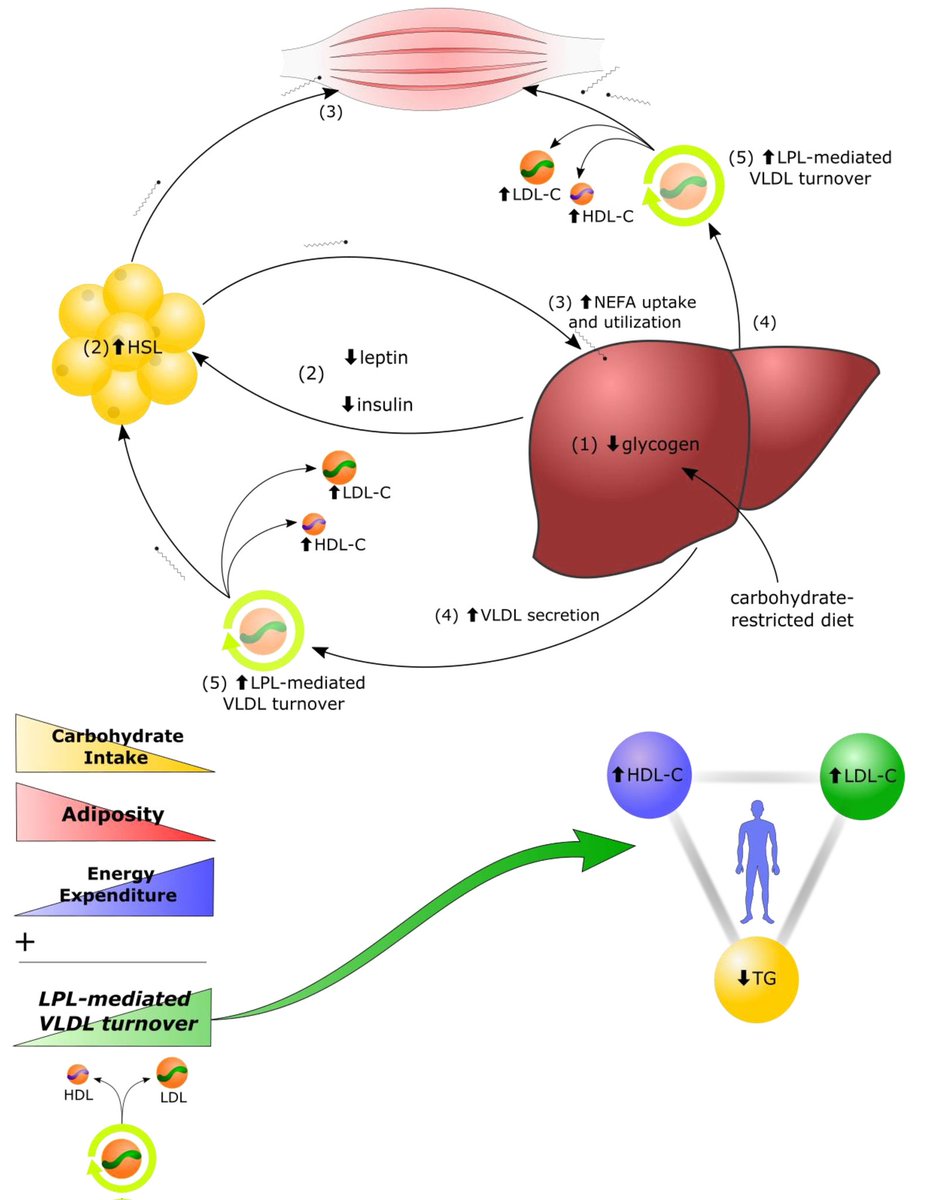
Adrian Soto-Mota
@AdrianSotoMota
Followers
9K
Following
6K
Statuses
6K
Medical Doctor @UNAM_MX Physiology PhD @UniofOxford Data Science @Harvard Fellow @ACPIMPhysicians Internal Medicine Consultant @incmnszmx Prof @TecdeMonterrey
Mexico
Joined November 2009
⚠️📣NEW PAPER🔔‼️ @AJCNutrition (link at the end👇🏼🧵) With Yusceli Flores, @nicknorwitz, @realDaveFeldman, Mark Pereira, Goodarz Danaei, and @davidludwigmd A meta-analysis (MAA) + individual participant data (IPD) analysis of 41 RCTs entailing the #LEM and the #LMHR phenotype.
26
95
353
RT @MetabolicHConf: Metabolic Health Conference – India’s 1st Low-Carb Conference Platform The 3rd Metabolic Health Conference will be hel…
0
15
0
RT @suzeschneider: 😳 Say What?! A 2017 review found that most kidney research (73.18%) did not involve ANY direct patients! If you're int…
0
2
0
@realDaveFeldman @Resilient4ALL @bryan_johnson If multilinear regressions were enough, we would have solved these problems long ago. The quote is not mine is Donald Rubin's. "No causation without manipulation"
2
0
6
@EmanBotl I feel obliged to say that, if you are going for it, stay away from unpasteurized dairy products from 🇲🇽. Because of UMSCA, it's likely you have access to them and it's likely their price will be competitive. However, Brucellosis is definitely still a thing in rural 🇲🇽.
0
0
1
In this regard, it is also important to remind ourselves that finding "insulin sensitive heavy unprosessed-meat eaters" was not hard (until very recently), while data on people with this profile is almost non-existing in the available Scientific Literature. Modern Epidemiology and Biomedical Sciences developed at the same time as the food industry.
Healthy user bias is a real concern and limitation of large prospective studies especially for nutritional epidemiology and adjacent fields. With that said, when results predominantly point in one direction and are supported by various molecular and cellular mechanisms which explain the source of the harm, it becomes impossible to ignore. One big challenge in the case of red meat is to stratify the effect by meat quality. It is very clear that processed and over cooked read meat is particularly harmful. Could it be that what is called "unprocessed red meat" is also hiding less noticeable layers of negative effects that need to yet be understood for a better assessment of the damage, and potential benefits of red meat? Maybe it is helpful then to evaluate red meat eaters who are otherwise healthy in all their habits (eating red meat because they are contrarian to the evidence). New studies could focus on recruiting smaller numbers of "well vetted" healthy subjects that differ in meat consumption in context to their overall diet and their belief that red meat is “good” for you.
1
0
12
@rocksrocks_9 @realDaveFeldman @bryan_johnson Do you realize that the paper you are posting clearly explains why those T3 changes should NOT be interpreted as Hypothyroidism?
0
0
2
@lipo_fan @dylanarmbruste3 @realDaveFeldman @ethanjweiss @BioLayne @PeterAttiaMD @foundmyfitness @theproof @nicknorwitz @mvholmes @mendel_random I haven't read this paper in depth. Therefore, I cannot comment right now. However, I'll talk about Mendelian Randomization studies in CoSci! I promise to review it in my talk!
1
0
4



